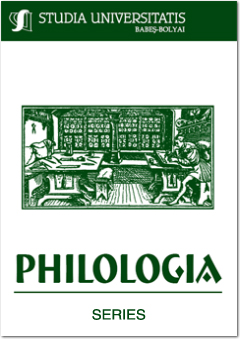THE CRISIS OF IDENTITY IN JOY KOGAWA’S OBASAN
THE CRISIS OF IDENTITY IN JOY KOGAWA’S OBASAN
Author(s): Oana-Meda PăloşanuSubject(s): Language and Literature Studies
Published by: Studia Universitatis Babes-Bolyai
Keywords: Identity; Silence; Language.
Summary/Abstract: The Crisis of Identity in Joy Kogawa’s Obasan. The crisis of identity in Joy Kogawa’s Obasan. The primary desideratum of this study is to analyze how the Japanese Weltanschauung and sense of self are constituted under the incidence of cultural secessionism and pan-generational conflict and to identify the role of silence as a specific mechanism in human interaction. This paper will be focusing on is a member of the Japanese diaspora in Canada whose identity development and cultural assimilation were compromised by the series of socio-political events consequential to the commencement of World War II and the disposition of power allegiances of the belligerent states. The focus will be on elements pertaining to social ostracism which render characters’ assumption of a new ipseity problematic and on how their catharsis occurs only after an enantiodromia , a deep questioning of one’s cultural and racial heritage. The specific cultural dialogism of the novel endorses a paradoxical construction of identity, dominated by heteroglossia, heterogeneity and antagonistic systems of representation. Communicational patterns divergent from the Eurocentric standard create a substantially different interactional template for the protagonists, coalescing silence and the principle of non-verbal communication as staples of dialogism and synergy. The antagonistic linguistic proclivity of the characters illustrates the binary archetype of stone-water, immobility-fluidity, which is an isochronous theme in Japanese literature through language.
Journal: Studia Universitatis Babes-Bolyai - Philologia
- Issue Year: 58/2013
- Issue No: 1
- Page Range: 245-255
- Page Count: 11
- Language: English

